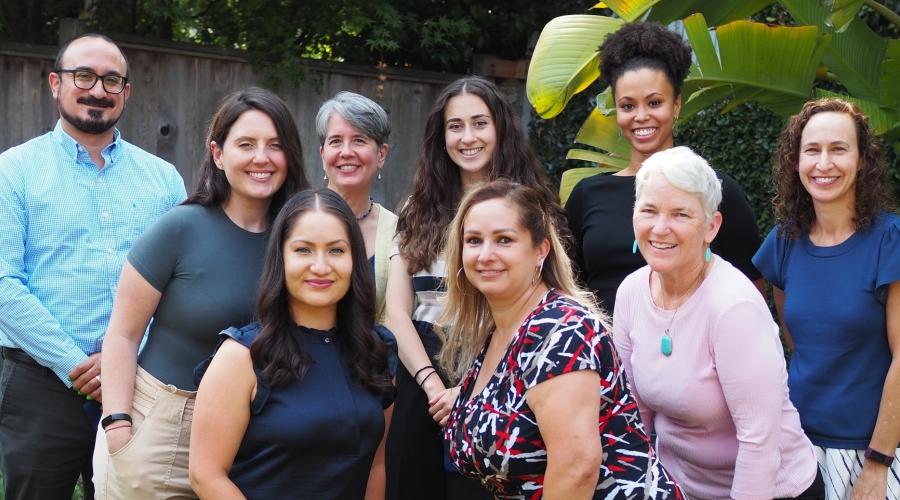
Helping Vulnerable Youth through Novel Interventions
“Having shared language and experiences helps us walk with families through difficult and traumatic situations,” says UCSF interventionist Gabrielle Woodland, an Oakland native who has lived with type 1 diabetes for over a decade.
Woodland is one of the interventionists for the Novel Interventions in Children’s Healthcare (NICH) program, a promising service launched in 2020 by the UCSF Department of Pediatrics to help youth that have developed poor health due to complex medical conditions and significant psychosocial vulnerabilities.
Each child accepted into the program is assigned to an interventionist, whose role is to gain a full understanding of the youth’s situation and challenges, and provide them with consistent, positive support in any aspect of their life that needs it.
Before enrolling in NICH, these individuals were often working with teams of primary care providers, specialists, nurses, and social workers, and yet would end up frequently hospitalized with acute complications. Social vulnerabilities such as transportation insecurity can be so disruptive that they prevent a child from making it to their medical visits—an insurmountable obstacle for clinicians. Food and housing insecurities are also debilitating to health, particularly for children battling chronic and complex diseases.
Most NICH participants have type 1 diabetes, but the program accepts youth with a wide variety of medical issues, including cancer, chronic pain and cystic fibrosis. NICH does not supplant care providers but rather seeks to identify and address barriers to care while facilitating positive interactions between healthcare team members, patients and their families.
Building Trust
To establish a rapport with the patient, interventionists attend all medical visits and meet with the child once per week. They also check-in with them daily through call or text.
“The relationship is the secret sauce of the program. By meeting and talking with the patient regularly, not all interactions are negatively framed,” says Woodland. “Us interventionists are in a unique position to be their cheerleader and discuss decision making.”
Interventionists also aim to engage individuals important to the child’s life, educating them about the disease or teaching them skills to properly manage the medical condition or a potential crisis. Patients are often given simple, attainable goals (e.g., sending a picture of their daily insulin injection) with an established and consistent reward system to help keep them on track.
“We’ll go out to people living in their cars or those more than an hour away. We’ll meet their families, their teachers, their coaches – anyone and everyone important in their life.” says Woodland. “Consistency goes a long way toward building trust.”
Addressing Social Determinants of Health
Woodland has prior experience working with people suffering from homelessness and helped to get one of her NICH patients out of a foster home and back with their mother. Woodland then assisted the mother apply for COVID-19 rent relief and connected the patient to both a diabetes summer camp and a jobs program.
Part of the NICH program’s strength comes from providing help to the patient’s life outside the clinic, where the true drivers of their poor health exist and obstruct.
Measurable Results
In the first few years of the program, patients enrolled in NICH made more of their doctor visits, experienced less acute events from their disease, and were hospitalized fewer times for an emergency compared to the year before they entered the program.
UCSF currently has 4 NICH interventionists, each of whom came to the position with their own background and skillset that help them connect with certain patients. They’ve been trained to work with medical clinics and help families combat any issue interfering with their child’s healthcare. Ultimately, they’ve dedicated themselves to giving the most medically and socially vulnerable youth an opportunity to live a healthier and more fulfilled life.
Learn more about UCSF’s philanthropy-funded NICH program here.
